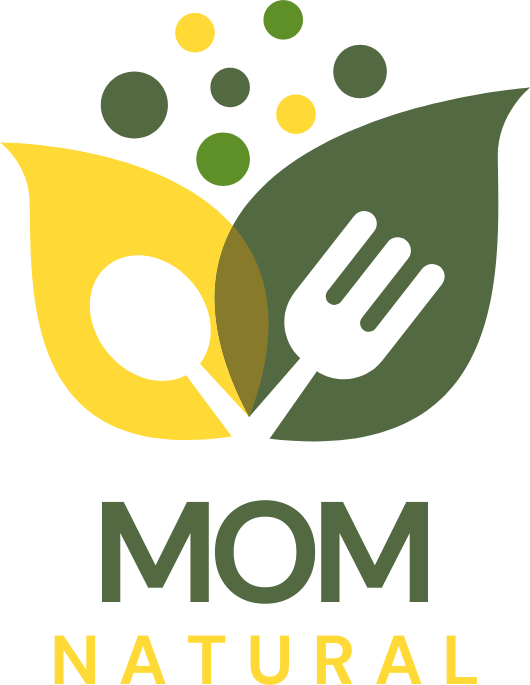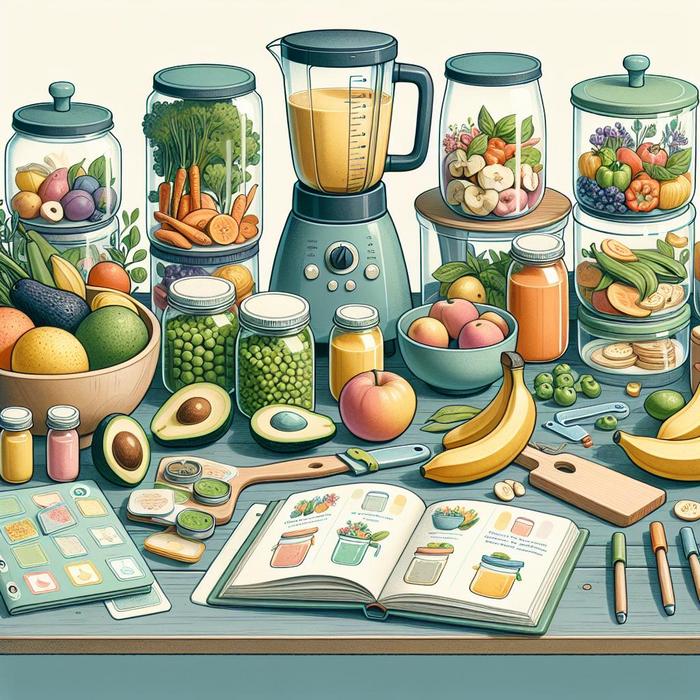Starting Your Journey With Homemade Baby Food
Starting your journey with homemade baby food can be exciting yet intimidating. We were there too, trying to prepare nutritious baby meals and getting overwhelmed by all the options. But, with a little bit of practice and helpful resources, we got the hang of it and witnessed the benefits it had on our little one’s health. Here, we will share our experience with making baby food, some of our favorite homemade baby food recipes, and our storage tips to make the process smoother for you.
Why Do We Choose Homemade Baby Food?
Before we dive into the how-to, let’s address the why. Here is what we discovered:
- Steering clear of preservatives: Store-bought baby food, although convenient, often contains preservatives and sugars. Making baby food at home allows you to know exactly what’s being ingested.
- Variety of flavors: Homemade food offers a broad range of flavors and textures, helping your baby’s palate expand and accept different foods as they grow.
- Cost Efficiency: With portion control and smart storage, homemade baby food can be significantly cheaper than its store-bought counterpart.
Getting Started: What You Need
To begin making baby food, you’ll require a few essential kitchen gadgets:
- A good quality blender or food processor: This is to puree the food until it’s a suitable texture for your baby.
- Storage containers: You need these to store the prepared meals. We prefer using glass containers as they are safer and don’t contain harmful chemicals.
- A steamer: Steaming is the preferred method of cooking for babies as it maintains the food’s nutrients.
It’s also beneficial to invest in baby-friendly cookbooks or online resources for homemade baby food recipes. We found Homesteading Family and Family Food On The Table to be fantastic resources during our journey.
Simple Homemade Baby Food Recipes
Ready to start cooking? Here are a couple of our tried and tested homemade baby food recipes that are nutritious and easy to make.
1. Apple Puree
Apples are a great source of fiber and vitamin C, making them an excellent choice for one of the first foods for the baby. You can refer to our guide for a step-by-step tutorial.
2. Spinach And Sweet Potato Puree
This highly nutritious blend is a powerhouse of vitamins A, C, and E, calcium, iron, and dietary fiber. You can discover the recipe on Family Food On The Table.
Always remember to introduce one food at a time and watch for any signs of food allergies.
Storing Tips for Homemade Baby Food
Making baby food is no small feat, so you want to make sure nothing goes to waste. We learned some excellent storage tips that helped us preserve our homemade baby food:
- Freezing: We freeze our purees in silicone molds and then transfer the frozen cubes to labeled freezer bags. This method not only saves space but also allows portion control.
- Refrigerating: If you plan to use the puree within 48 hours, you can refrigerate it. Anything longer should ideally be frozen.
Using these storage methods helped us reduce waste and ensure our little one always had healthy, homemade meals ready.
Get Crafty With Homemade Baby Food
Making baby food at home is a beautiful journey. You get to control the ingredients that go into your baby’s food, and it’s a great way to instill healthy eating habits early on. Remember, each baby is unique, and it may take a little trial and error before you learn what your little one enjoys.
You can refer to Healthline’s article for more homemade baby food recipes and tips. Here’s to a valuable and rewarding experience of making nutritious baby meals!
Incorporating Variety & Experimenting with Taste
As they say, variety is the spice of life, and that holds for your baby’s food as well. While the classics like apple and potato purees are tried and tested, introducing a diverse range of foods can not only enhance your child’s growing palate but also serve as a way to make mealtime more exciting for them.
For example, you can experiment with herbs and spices – avoid added sugars and salts. Spices like cinnamon, clove, turmeric, and herbs like mint, basil, and parsley can be added in small quantities. Mentioning herbs, here’s our favorite recipe for Carrot and Basil Puree. It makes for a flavorful and healthy meal for your baby. Discover more blend recipe ideas on Yummy Toddler Food.
Importance of Organic Baby Food
Whenever possible, it’s recommended to use organic produce for making baby food. This means the fruits and vegetables you use are grown without the use of harmful pesticides and synthetic fertilizers, ensuring the best for your baby’s health.
Using organic produces can also help in reducing the risk of allergies or digestion problems. While sourcing organic baby food can be a little more expensive, nurturing your baby with the healthiest choices can definitely be worth it.
Taking Baby Steps Towards Homemade Baby Food
Preparing homemade baby food is not as intimidating as it first seems. Plus, the benefits of homemade baby food far outweigh any initial hurdles. If you are only just starting, consider taking it slow. Start with something simple like pureed apples or bananas, then gradually incorporate more complexity into your baby’s meals as you get the hang of it.
Sharing personal experiences and recipes on forums like Reddit can also provide more insights and ideas.
Can Homemade Baby Food Make Your Baby an Adventurous Eater?
There is an interesting thought that homemade baby food can influence your child’s eating habits long-term. A Washington Post article analyzing the impacts of homemade baby food found that children who’d been introduced to a variety of homemade foods were less likely to become picky eaters later in life.
You can read more about this fascinating concept on this link. That’s another reason to love homemade baby food!
Moving Forward with Confidence
We hope these tips and insights on homemade baby food have been helpful and reassuring. Remember, every new experience is a learning opportunity. Don’t get discouraged if things don’t go as planned initially – it takes some trial and error to find the perfect recipes and strategies that work for you and your little one.
Embark on this fulfilling journey of preparing homemade baby food with joy and confidence, knowing that the health benefits, cost savings, and the love that goes into every meal making it all worthwhile.

